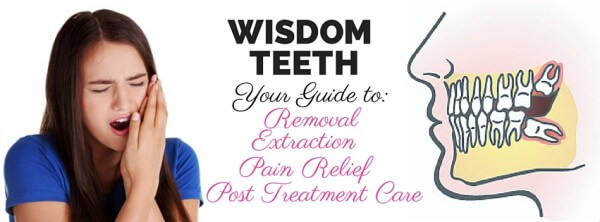
Are you in your teens or early 20’s and are worried about your wisdom teeth?
Patients often choose to remove their wisdom teeth because they cause pain as they develop and shift but does this necessarily mean they need to be removed? Wisdom teeth (or adult molars) generally appear during late teens or early twenties and can present a range of complications for you and your smile if not assessed by a dentist.
The following article from Mona Goodarzi DDS in Irvine answers a few frequently asked questions surrounding wisdom teeth. This includes why some people wouldn’t need them to be removed, what you should expect for your wisdom teeth extraction appointment and also some advice on how to overcome the post treatment recovery.
Why wouldn’t I need my wisdom teeth removed?
For some, wisdom teeth will grow and emerge without causing too much pain. In these cases, the pain associated with wisdom teeth is caused because the jaw bone and gums have had to change in order to accommodate the tooth.
The simplest comparison would be comparing wisdom teeth development to a teething child. When we have to grow an entirely new tooth in a place where a tooth has never been, our jaw bones and gums have to change in order to accommodate for the additional tooth. Think of the tooth as causing a sort of growing pain during this process.
After it has fully developed and emerged from the gums the pain should stop. If your teeth, gums and jaw are healthy and undamaged after the tooth is fully emerged, then extraction may not be necessary. Sometimes these teeth can be a valuable asset to the mouth when healthy and properly aligned, but more often, they require removal.
Why would I need my wisdom teeth removed?
Unfortunately not all patients are that lucky. When wisdom teeth are misaligned there are a variety of different concerns that could apply to the patient.
The teeth may position themselves:
- Horizontally
- Angling toward the neighboring teeth
- Angling away from the neighboring teeth
If the jaw doesn’t have enough space for the teeth, they may even cause the existing teeth to shift out of line. If you’ve undergone expensive orthodontic treatment in the past, poor alignment of wisdom teeth can crowd or damage adjacent teeth, the jawbone, or nerves.
Other concerning factors could be that the teeth become impacted. This occurs when the teeth do not completely emerge from the gums and can cause infection and bacteria build-up resulting in the need for removal.
What should I expect during the wisdom teeth extraction appointment?
Here at Mona Goodarzi DDS we focus on ensuring our patients are as comfortable and calm as possible prior to commencing their treatment.
Pain relief and sedation available
As many patients suffer from dental anxiety, our Board Certified Anesthesiologist, Dr. Alikhani performs and monitors the deeper states of sedation. Sedation and pain relief options available here at Mona Goodarzi DDS are:
- Adult oral conscious sedation
- Inhalation nitrous oxide sedation
- Intra-venous conscious sedation
- General anesthesia
These range from light sedation options to more heavy forms of sedation for patients who are especially anxious or require this form of sedation for their treatment. After we’ve determined the most appropriate pain relief method with you, your treatment will likely carry out the following way:
5 Steps we will take to extract your wisdom teeth
- First we will make a slight incision in the gum so the tooth is visible
- Carefully we will work to expose the root of the tooth
- The tooth will then be extracted
- The incision will be cleaned and sterilized
- The area will be sealed, usually with dissolvable stiches
Once we are certain the procedure was successful we will ensure you have all the guidance you need to move toward a speedy recovery.
What should I expect after my wisdom teeth extraction treatment?
Generally you will be in pain for a few days after your treatment. It is likely you may feel a little dazed and confused immediately prior to the treatment from the pain relief. It is common for the wounds to bleed and cause pain.
Give yourself time to heal. The more you exert yourself, the longer your recovery period is likely to be. If you find you are still bleeding after the first 24 hours, ask whoever is caring for you to contact us for further guidance.
Our team at Mona Goodarzi DDS in Irvine will take care to ensure you have all of the information and assistance you need to help you on your way to a swift recovery.